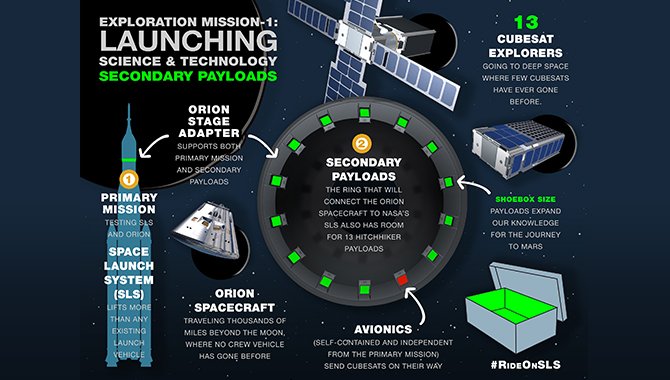As I surveyed the sprawling school district campus, I couldn’t help but reflect on how dramatically audio-visual technology has transformed educational environments in recent years. The position of IT/AV Specialist has evolved from simply maintaining projectors and sound systems to orchestrating complex digital ecosystems that facilitate learning across multiple platforms and environments. This transformation represents more than just technological advancement—it embodies a fundamental shift in how educational institutions approach communication, collaboration, and knowledge dissemination.
The modern educational AV specialist navigates a landscape where analog and digital technologies coexist and often must be integrated seamlessly. What was once a relatively straightforward technical role has become a multifaceted position requiring expertise in traditional AV systems, emerging digital platforms, and the interconnected infrastructure that binds them together. This evolution mirrors broader technological trends, where the boundaries between different technological domains continue to blur.
The Expanding Scope of Educational AV Technology
The responsibilities of today’s AV specialists extend far beyond traditional classroom support. According to recent job descriptions and industry analyses, these professionals now oversee complex technical ecosystems spanning numerous educational contexts:
- Athletic broadcasting (both indoor and outdoor)
- Fine arts facilities and performance spaces
- Teacher development centers with remote participation capabilities
- Security and surveillance integration
- Virtual, hybrid, and traditional classroom environments
- Administrative meetings and governance sessions
- Community events and parent engagement activities
This breadth of responsibility requires not only technical versatility but also a nuanced understanding of educational objectives and stakeholder needs. The modern AV specialist must be able to translate pedagogical goals into technological solutions while maintaining systems that are accessible, reliable, and forward-looking.

Educational – Balancing Technological Innovation with Practical Implementation
One of the most significant challenges facing educational AV specialists is the need to balance innovation with practicality. While emerging technologies offer exciting possibilities for enhancing educational experiences, their implementation must be tempered with considerations of sustainability, usability, and cost-effectiveness. This requires a thoughtful approach to technology adoption that prioritizes educational outcomes over technological novelty.
“The effective integration of AV technology into educational environments requires more than just technical knowledge,” notes Dr. Elaine Martinez, an educational technology researcher. “It demands an understanding of how technology can enhance learning experiences without overwhelming educators or students. The most successful implementations are those that align seamlessly with existing educational practices while gently extending pedagogical possibilities.”
This sentiment is reflected in the evolving job requirements for AV specialists, which increasingly emphasize skills in project management, stakeholder communication, and educational context awareness alongside technical expertise. The ability to collaborate effectively with educators, administrators, and other stakeholders has become as important as technical proficiency.
Educational – The Convergence of Physical and Virtual Learning Environments
Perhaps the most transformative aspect of modern educational AV technology is its role in bridging physical and virtual learning environments. The COVID-19 pandemic accelerated this convergence, forcing educational institutions to rapidly adopt hybrid learning models that combine in-person and remote participation. While the immediate crisis has subsided, the technological infrastructure developed during this period continues to shape educational practices.
Contemporary AV specialists are at the forefront of maintaining and enhancing these hybrid capabilities, ensuring that educational experiences remain consistent regardless of physical location. This includes supporting:
- Simultaneous in-person and remote instruction
- Recorded content repositories for asynchronous learning
- Virtual field trips and external collaborations
- Hybrid parent-teacher conferences and community events
- Remote access to specialized educational resources
The successful navigation of these hybrid environments requires not only technical expertise but also a deep understanding of the unique challenges and opportunities they present. AV specialists must consider factors such as equity of access, engagement across different participation modes, and the integration of diverse technological platforms.
Beyond Technical Support: The Strategic Role of AV Specialists
As the technological landscape of education continues to evolve, AV specialists are increasingly assuming strategic roles within their institutions. Rather than simply responding to technical issues, they are proactively shaping how technology is integrated into educational environments and contributing to long-term technological planning.
This shift is evident in job descriptions that emphasize responsibilities such as:
- Researching and implementing new AV technologies
- Developing standardized procedures for technology integration
- Providing training and support for educators and staff
- Contributing to technology planning and budgeting processes
- Ensuring compliance with accessibility requirements and industry standards
These expanded responsibilities reflect a growing recognition of the critical role that AV technology plays in modern education. As educational institutions continue to invest in technological infrastructure, AV specialists serve as essential translators between technological possibilities and educational needs.

The Human Element in Educational Technology
Amid discussions of technological innovation and system integration, it’s important to remember that the ultimate purpose of educational AV technology is to enhance human experiences. Effective AV specialists understand that their work is fundamentally about facilitating communication, collaboration, and learning—not simply maintaining hardware and software.
This human-centered approach requires empathy, patience, and a genuine commitment to supporting educational objectives. It involves understanding the varying levels of technological comfort among educators, students, and other stakeholders, and providing appropriate support for each individual’s needs. It also requires recognizing that technological solutions must be designed with accessibility and inclusivity in mind, ensuring that all members of the educational community can benefit from technological advancements.
The most successful AV specialists are those who can balance technical expertise with interpersonal skills, serving as both technological implementers and educational partners. They understand that their role is not simply to deploy the latest technologies but to ensure that those technologies serve meaningful educational purposes.
Looking Forward: The Future of Educational AV Technology
As we look to the future, several trends seem likely to shape the evolution of educational AV technology:
- Increased integration of artificial intelligence and machine learning capabilities
- Enhanced data collection and analytics for personalized learning experiences
- Greater emphasis on immersive technologies such as augmented and virtual reality
- Continued blurring of boundaries between physical and virtual learning environments
- Heightened focus on sustainability and energy efficiency in technology deployment
Navigating these trends will require AV specialists to continuously expand their knowledge and skills, staying abreast of technological developments while maintaining a focus on educational outcomes. It will also require educational institutions to recognize the strategic importance of AV technology and invest accordingly in both infrastructure and human resources.
The evolution of educational AV technology represents not just a technological shift but a reimagining of how we approach teaching and learning. By thoughtfully integrating technology into educational environments, we can create more engaging, accessible, and effective learning experiences for all students. The AV specialists who facilitate this integration serve as essential bridges between technological possibility and educational reality, helping to shape the future of education through their expertise and insight.



